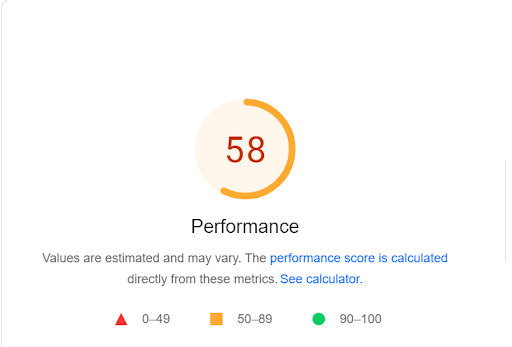
-
ROAR
- 3 Min Read
- Blog, Digital Marketing
Is JavaScript bad for SEO?
As we already know, SEO should be an important part of your marketing strategy to improve your online presence. Ranking high on Google’s search engine result page is an invaluable asset that can drive plenty of high-quality potential customers.
JavaScript is bad for SEO – How? I hear you ask – JavaScript can provide a bad user experience by causing render-blocking (slowing down your website), visitors need to wait more to get any response, which ultimately causes a low rank on Google.
What is JavaScript?
Most web developers use HTML, CSS, and JavaScript to build their websites, but only JavaScript is considered a programming language. Don’t worry if it’s still not clear read further to understand more.
- So HTML is called a markup language which is basically the skeleton of the site consisting mainly of the text that appears on the front end.
- CSS gives style to your page by setting frameworks, adding colours, and some basic functionality.
- JavaScript on the other hand is a programming language that adds sophisticated functionality to your applications, such as online calculators or comparison tools. These languages are translated by your browser and sometimes it can be overwhelming, causing slow page load time – a slow website causes a poor user experience and can lead to poor conversion rates.
When is JavaScript bad for SEO?
Source: Page Speed Insights
Poorly implemented programming languages not only harm your technical SEO but can also spoil your visitors’ experience.
This is the right time to talk about the positive aspect because we don’t want to deter you from using JavaScript. Well-written, appealing applications can provide amazing value to your organization by attracting potential customers to your site – improving the bounce rate, session durations, and overall user experience.
The reason JavaScript affects page speed load time is located in the nature of code interpretation. When we visit a website our browser translates code into the front-end interface – (the page the user actually sees). The browser (such as Google Chrome) reads the web page code from the top to the bottom and translates it, but when it encounters more resource-required scripts it stops and moves forward only when it interprets the particular code – it’s called render-blocking.
Recently Google genius John Muller was speaking about site dependence on JavaScript and if it is an issue for the Googlebot, he mentioned: “It doesn’t primarily care about user-friendliness. But of course, your users care about user-friendliness.
And that’s something where maybe it makes sense to do a little bit more so that your users are really for sure having a good experience on your pages.”
How to measure if JavaScript is destructive to your website?
Source: Page Speed Insights
With Google’s Web Core Vital update – page speed load time became even more important, so our first advice is to test, test and test. The most accurate way to make sure JavaScript or CSS aren’t harmful to your SEO is to determine whether it slows down your website. Testing on real devices might be the first step – websites load differently on phones, tablets, and computers due to the different CPU capabilities. Google Page Speed Insight can provide you with amazing in-depth, real-time diagnostics about how users perceive your site and provide some key opportunities on mobile and desktop.
How to solve JavaScript issues?
- Our recommendation is to always work with experienced web developers who understand the importance and the impact of programming languages on SEO performance.
- Moving your assets to a Content Delivery Network (CDN) could serve website visitors by reducing latency (how much time does it take for web applications to perform particular actions triggered by the user)
- If you’re using WordPress and plugins to perform particular tasks, make sure you’re removing unused plugins because those are not serving your customers and unnecessarily causing render-blocking and consuming memory (Slows down your website).
To simply answer is JavaScript bad for SEO: it’s not bad, in fact when used and implemented correctly it can improve ranking and user experience by adding interactive interfaces, and help to retain visitors on your website for longer.
The best way to determine whether JavaScript is helpful for you is by testing it with the Google Page Speed Insights tool. We should bear in mind Google’s main aim is to serve searchers with relevant information at the right time, and in the right place.
We hope you found the answer to the question: ‘Is JavaScript bad for SEO?’
If you would like to find out how your website is performing for SEO, check out our free SEO audit tool.







